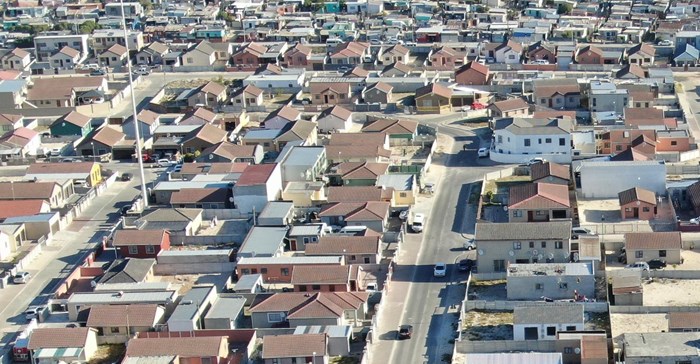The announcement that the City of Cape Town has approved a fund - aimed at supporting micro-developers who build affordable housing in lower-income communities - is a boost for aspiring property entrepreneurs in the province.

Source: Supplied.
Nomfundo Molemohi, portfolio manager for uMaStandi in the Western and Eastern Cape shares her views about the enormous potential to provide quality, affordable rental housing in the townships.
The demand for quality, affordable rental housing in Cape Town’s townships has been high for some time and shows no signs of slowing. uMaStandi, Township Urban Housing Fund's township-focused finance arm, has grown to offer finance in 11 Western Cape townships since it first established its office there in 2018.
Yet supporting property entrepreneurs who want to develop housing in the townships has had its challenges.
“One key challenge facing affordable housing development in any South African township is rooted in town planning,” Molemohi says. “Infrastructure to provide clean water, sewerage, and other essential municipal services is often insufficient in townships, so that zoning and building-plan approvals are slow and difficult.”
As a mortgage financier committed to inclusive growth and creating real development impact, uMaStandi engages with local government to ensure its projects have all the right approvals in place so that clients will have a commercially valuable asset when their building is complete.
“We know that people are constructing developments in the townships without the right approvals and certificates,” Molemohi says. “But because we make sure our clients’ projects are zoned correctly and plans are approved, our clients can access things like building insurance – a point of pride for us.
“We engage with local government to help our clients get their approvals timeously, and we’ve been able to bring several successful micro-developments online,” Molemohi says. “The fact that the City of Cape Town is supporting micro-developments in affordable housing through the new Development Charges Fund, is exciting for us and will help to smooth the process.”
Molemohi is optimistic that uMaStandi's several new developments will kick off in the province, where clients have been waiting for plan approvals.
“It’s important for private investors to help address the need for quality, affordable housing in townships. It cannot be addressed by government alone. Small-scale developers like those that uMaStandi funds are key not only to addressing the need for accommodation, but to stimulating township economies and the vibrancy of these communities.”
Township-focused property entrepreneurship
uMaStandi is unique in that it has the risk appetite to support property entrepreneurs with a focus on township developments.
“In particular, we work with clients who have knowledge of the township they want to invest in and understanding of the community’s needs. Often, this is because they grew up in the area, or still live there, and they have a vision and a passion for making a change close to home.”
For these micro-developers, well-run affordable housing developments represent the opportunity to build sustainable wealth for their families and leave a positive legacy for their communities.
“Converting run-down houses to provide decent accommodation and amenities like parking, security and Wi-Fi improves tenants’ lifestyles and has a positive impact on the community as well,” Molemohi says.
“One of our clients, for example, installed solar-powered spotlights to serve both the complex and the undeveloped field opposite the building. The developer knew that the area is a popular taxi stop and wanted to improve safety at night.”
Because uMaStandi supports the TUHF ethos of creating massive impact through scale, it encourages clients to consider building mixed-use developments. Including retail space in the housing development helps to provide access to important amenities – such as a place to buy groceries close to home.
Incorporating greening elements – such as solar geysers, solar lights, low-flow bathroom fittings – is another important consideration. It makes good commercial sense by helping tenants to manage their utility costs, offering back-up solutions for water and energy, and improving security – which in turn attracts tenants that are happy to pay their rent and renew their leases.
“Occupancy rates in uMaStandi developments is 100%,” Molemohi says. “Our clients often have waitlists for their units long before their projects are completed.”
Expansion into Eastern Cape
Building on its success in the Western Cape, uMaStandi has expanded its footprint into the Eastern Cape. It is actively engaging with local municipalities to understand town-planning needs in major metros.
“It’s important to engage with local government and support their plans for affordable housing developments if we are to make a positive impact for urban densification in the townships through private investment,” Molemohi explains.
Micro-affordable housing developments in the townships are an important part of changing South Africa’s socio-economic landscape. Creating decent housing with access to amenities in already densely populated areas stimulates local economic growth.
By empowering property entrepreneurs to unlock the equity in their township properties through commercially viable rental-housing businesses, uMaStandi supports inclusive growth and helps to create generational wealth for families who could not extract value from their properties before.













































